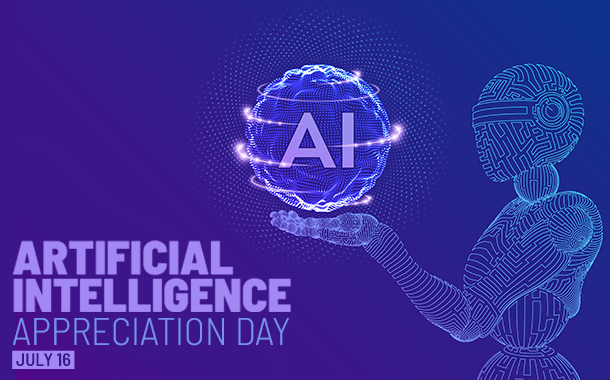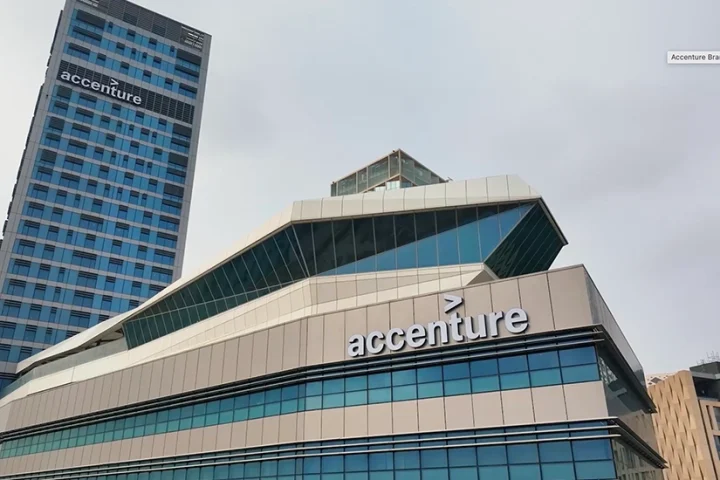Today, on AI Appreciation Day, we take a moment to reflect on how much the world has changed over the years due to artificial intelligence. AI is often seen as a revolutionary force, stirring both admiration and concern. Regardless of personal opinions, AI has undeniably become an integral part of our lives. Whether you’ve dabbled in AI, marveled at its potential, leveraged it in daily tasks, or are simply curious about how Netflix always knows the right show to recommend, or how Siri understands your commands, AI Appreciation Day is a time for everyone to acknowledge and celebrate this remarkable technology.
To gain insights into AI’s impact, we reached out to several experts in the field.

Ziad Nasr, General Manager of Acronis Middle East, shares, “UAE made history by appointing an AI minister in 2017, aiming to become a top global AI hub by 2031. Meanwhile, Saudi Arabia’s Vision 2030 places AI at the core of its strategy to diversify beyond petroleum reliance. These initiatives mark both nations as pioneers in the Middle East, shifting towards tech-driven innovation and expanding their global influence beyond the oil and gas sector. The development of technologies like the Falcon 2 AI model underscores the region’s commitment to innovation, competing with global giants like Meta and OpenAI. As technology evolves, it is no surprise that threats loom in the online world for businesses. According to Acronis’ Cyberthreats H1 Report, Bahrain and Egypt were two of the most targeted countries for malware attacks in Q1 2024.
However, AI remains at the forefront of cybersecurity innovation in 2024. In the UAE, nearly 95% of organizations plan to increase investments in artificial intelligence to enhance cybersecurity measures. At Acronis, AI-based technologies are used to perform malware detections and behavioral analysis and assist our MSP partners in understanding and investigating cybersecurity incidents. These AI-powered security systems enable organizations to autonomously detect anomalies, predict breaches, and respond swiftly to cyber attacks in real-time.”

Barry Norton, VP of Research at Milestone Systems, adds, “Artificial Intelligence (AI) is undeniably transforming the landscape of technology and security, marking a pivotal moment in our digital era. One striking example of AI’s transformative power is Generative AI. Traditional internet searches yield millions of results, requiring considerable effort to find valuable information. GenAI streamlines this process, delivering coherent and concise answers, thus freeing humans to focus on higher-level tasks and actionable insights. The integration of AI with search engines is just the beginning; combining AI with other technologies, such as video surveillance, has shown tremendous potential. Within the security landscape, AI-powered devices equipped with deep learning analytics are revolutionizing how we interpret video data. These smart devices are becoming increasingly adept at understanding video scenes, potentially surpassing human capabilities due to their scalability. The synergy between AI and video technology promises to empower individuals, businesses, and societies by enhancing security and operational efficiency. However, with these advancements come legitimate concerns about AI’s increasing role in our daily lives. Future generations may have different expectations of AI and technology, necessitating a shift from viewing technology as an end in itself to a means of achieving greater societal well-being.”

Kirsten Stoner, Product Strategy Technologist at Veeam Software, notes, “Cyberattacks have become more advanced, often going unnoticed for months or even a year. To stay protected, organizations should adopt a hybrid approach to detection, combining their existing security systems with AI-driven technology. AI-powered detection can analyze various data sources, like network traffic logs and user activity records, to identify suspicious patterns and anomalies. With the use of AI, organizations can detect current threats and provide predictive analysis. By training AI models with quality data sets, the detection process is accelerated, resulting in more accurate identification of anomalies, and reducing false positives. This allows organizations to detect threats early and respond faster to reduce data loss and avoid downtime associated with attacks. By training AI models using machine learning algorithms, the model can learn how to filter through the noise and differentiate between normal and malicious activities. This can help with predictive analysis and detecting unknown or emerging threats while improving over time.”

Rick Vanover, VP of Product Strategy at Veeam Software, emphasizes, “AI Appreciation Day 2024 is a newly recognized event, but this will be one that sticks around. In my professional experience, AI (like any new technology), has to align to an organization’s risk tolerance balanced with business benefits. In fact, I put these two as the deciding factor to determine if an AI-enhanced or AI-powered solution is worth pursuing. So much AI activity today gravitates to an awareness and education exercise, and you may soon find that moment where the business benefit becomes clear. Never forget the risks with the data flow of AI (or anything for that matter!). Further, should this business benefit become something your organization depends on, how is it being kept resilient and available? All of that considered, I’m super excited for the AI innovation in the market – both what we’re working on at Veeam and the broader ecosystem. This includes community-driven AI projects, continued integration of AI into Veeam’s data resiliency offerings, AI-powered customer experience solutions, and private AI solutions for our 5,000+ employees.”
Hence, AI Appreciation Day serves as a reminder of the profound impact artificial intelligence has on our lives and industries. As we celebrate the innovations and advancements in AI, it is essential to acknowledge both its potential and the responsibilities it brings. With insights from leading experts, we recognize AI’s transformative power in enhancing security, streamlining operations, and fostering innovation.

























